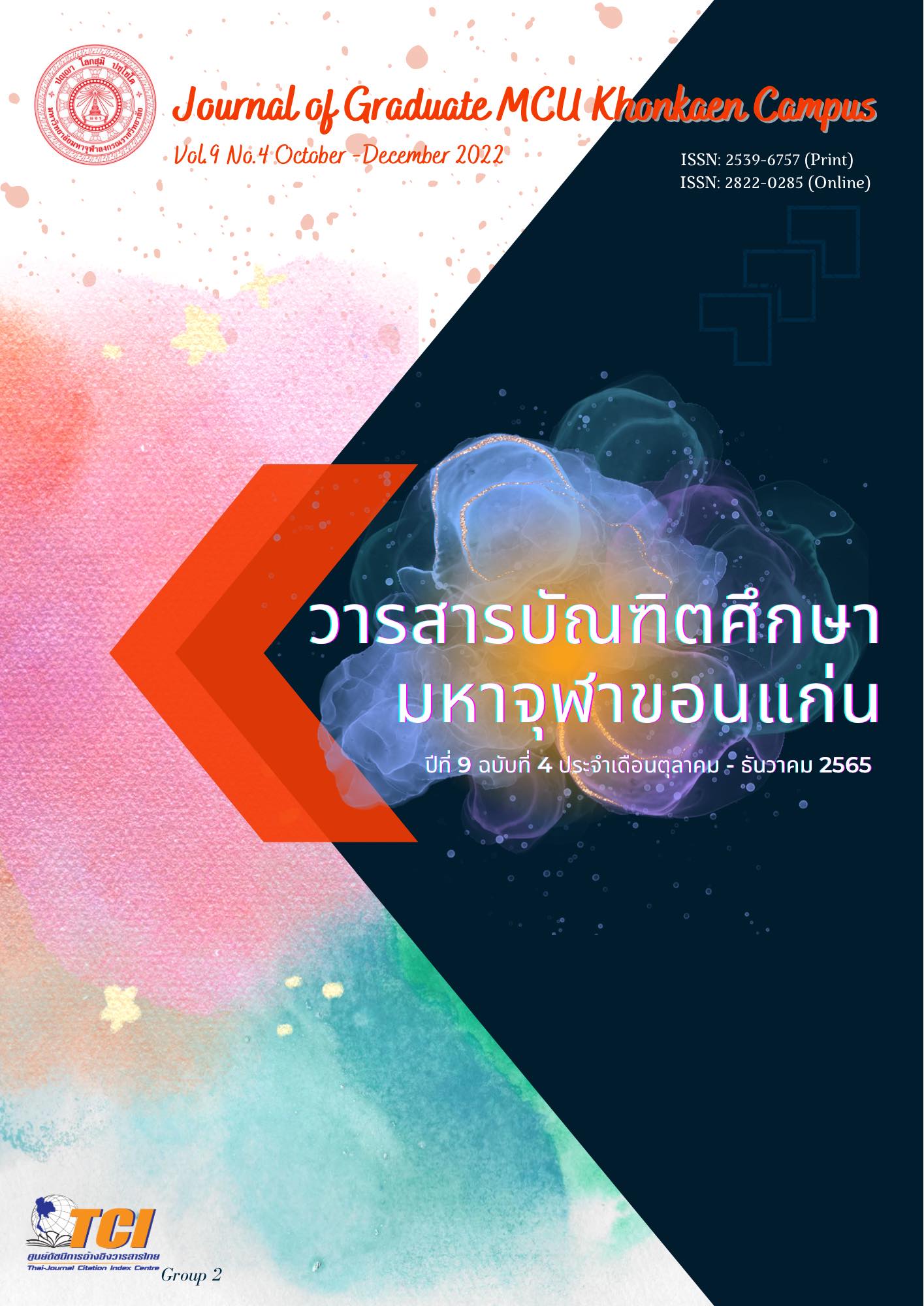An Analysis of the Value of Wooden Buddha Images at Phuttha - Pradit Temple, Ban Phon, Phon Thong Subdistrict, Chiang Yuen District, Maha Sarakham Province
Main Article Content
Abstract
The objectives of this research were: 1) to study the history and development of Buddha images in Buddhism; 2) to study the wooden Buddha images of Phuttha - Pradit Temple, Ban Phon, Phon Thong Sub-district, Chiang Yuen District, Maha Sarakham Province and 3) to analyze the value of wooden Buddha images at Phuttha - Pradit Temple. This study was carried out by means of qualitative research. The research tool was an in-depth interview form and focus group discussion. The key informants were five monks, five scholars, and five village philosophers. The obtained data were interpreted by descriptive analysis using the inductive method.
The research results were as follows:
1. History and development of Buddha images in Buddhism: about 300 years after the Buddha passed away, Greek artisans built the first Buddha image with granite to represent the Buddha. The creation of the Buddha image is based on the characteristics of the Buddha's great man. Later, there have been developments in the construction of Buddha images in various ways for many materials such as cement, gold, metal, and wood.
2. The wooden Buddha images of Phuttha - Pradit Temple, Ban Phon, Phon Thong Sub-district, Chiang Yuen District, Maha Sarakham Province: to create a wooden Buddha image, villagers will choose auspicious wood and wood related to Buddhism, such as Bodhi, Tamarind, Sandalwood, etc. The wooden Buddha image was built for Buddhist worship as a mental anchor and a reminder to do good and refrain from evil, not to be careless, and to spread the teachings of the Buddha.
3. The value of wooden Buddha images at Phuttha- Pradit Temple: the values are benefits derived from wooden Buddha images as follows: (1) artistic value, (2) aesthetic value, (3) ethical value, (4) religious value, (5) spiritual value, (6) social value and (7) cultural and tradition value.
Article Details

This work is licensed under a Creative Commons Attribution-NonCommercial-NoDerivatives 4.0 International License.
References
กานต์ กาญจนพิมาย. (2553). การศึกษาวิเคราะห์พระพุทธรูปไม้อีสานเชิงปรัชญา. (วิทยานิพนธ์ปริญญาศิลปศาสตรมหาบัณฑิต). ขอนแก่น: มหาวิทยาลัยขอนแก่น.
กรมการศาสนา. (2525). ประวัติพุทธรูปปางต่าง ๆ. กรุงเทพฯ: โรงพิมพ์การศาสนา.
บุษบา กิติจันทโรภาส. (2539). คติความเชื่อเรื่องพระพุทธรูปไม้ในเขตอำเภอเมืองสารคาม. (วิทยานิพนธ์ปริญญาศิลปศาสตรมหาบัณฑิต). มหาสารคาม: มหาวิทยาลัยมหาสารคาม.
ศิรพงศ์ ศักดิ์สิทธิ์. (2545). คติการสร้างพระพุทธรูปไม้ในล้านนา. (วิทยานิพนธ์ปริญญาศิลปศาสตรมหาบัณฑิต). กรุงเทพฯ: มหาวิทยาลัยศิลปากร.

